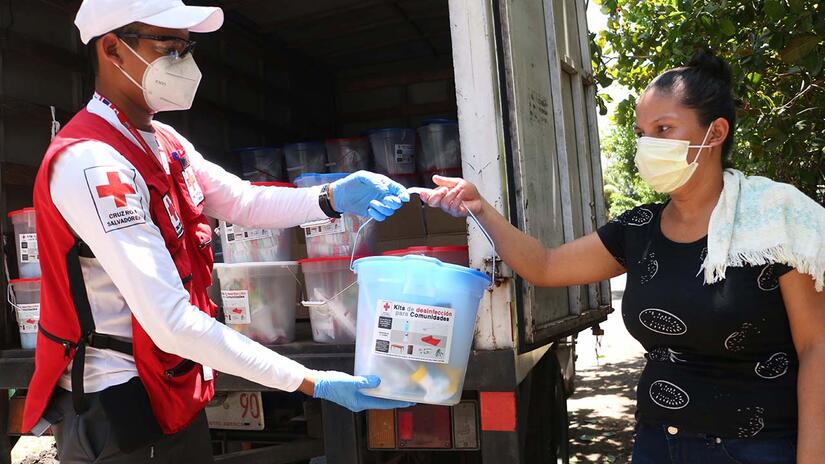Sandra couldn't sleep. It was the night of May 31st, the rain was falling in buckets from the sky and the wind was raging round the walls of the house. The storm Amanda was hitting the community La Anona in San Luis La Herradura in El Salvador. That same night the Comapa River had overflowed its banks and surrounding villages were flooded with water and mud. Among the houses affected was that of Sandra and her family. "That same night we had to go out in search of a place to stay," she said. " The water came into our house. It was completely flooded."
The next day, like thousands of families across the country, she moved to a nearby school that was being used as a temporary shelter. At the moment, there are 152 hostels opened by the National Government with about 5,400 beds.
Sandra finally returned to her homeland, but her home and livelihood are affected, and she is now facing a complex health situation. The current conditions make her more vulnerable amidst the context of COVID-19. "Before the floods, the situation was already very complicated with the pandemic. Many people in the community who live from street vending could not go out to sell," she said, while waiting her turn to receive food kits delivered by the Salvadorean Red Cross in her community. "We could no longer work the farmland and everything we had there was lost. Crops were lost, animals were lost, and now we have no income."
Since the beginning of the floods, the Red Cross has been involved in rescue work and delivery of humanitarian aid. At present, volunteers work directly with 30 hostels in the country and 5 reception shelters where they deliver hygiene and sanitation kits, as well as mattresses and blankets. They also work in communities highly affected by the floods. More than 1,000 volunteers have participated in these activities, and have been deployed to 10 departments in the country from the headquarters and different branches of the Salvadorean Red Cross. However, the closure of roads due to landslides has complicated the movement of Red Cross staff inland.
At the moment the rains have diminished in intensity, but the worst is yet to come. Thousands of families have lost their homes. Others are returning home; yet they are exposed to risks, such as landslides and unsafe conditions. "Many people in the community have the flu and the fever, and need to go to health centers to get tested for Covid-19." Sandra said. "Mosquitoes are everywhere and we are afraid that we will get dengue fever", she added.
As the waters recede, the risk of disease outbreaks begins to increase and those affected need food, psychosocial support, and access to water and sanitation. The Salvadorean Red Cross is developing a project to provide support in these areas. "Through this project, we will support three communities in the department of La Libertad", said Alex Valle, Director of Risk Management at the Salvadorean Red Cross.
The storm claimed thirty lives. Yet, it is only the first phase of the emergency. Recovery work involves a major effort to support populations that have been affected by the floods and COVID-19.
"This is the first time we have to face an emergency of this kind, but we will be there to do everything we can to provide support to affected people", Valle said.

